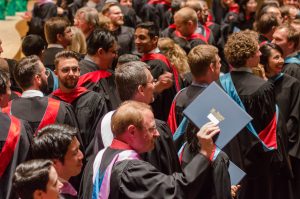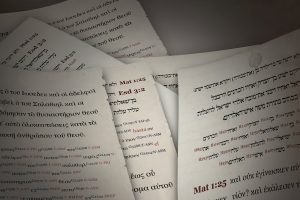Mission Statement
The primary aim of this ministry is to encourage all Christians to press on towards intellectual maturity and to have as their final goal a greater love of God and of their neighbor. Towards this end, this ministry will not only provide lessons that are intellectually challenging, but will also promote such spiritual disciplines as prayer, worship, and fellowship. Of course, such aspirations are common among Christian churches and institutions, so it is necessary to be more specific.

The Biblical Mandate for the Mission Statement

Jesus said, “Behold, I send you out as sheep in the midst of wolves; so be wise as serpents and innocent as doves.”(1) In this statement we find two main points, which are:
There are hostile forces in the world that are set against God’s people. Therefore, we should not be naïve or caught off guard when facing our opponents, for they are bent on pulling us down.
The way we counter their hostility, according to this passage, is by combining two virtues: intellectual maturity and ethical fidelity. Indeed, we are to be as intellectually astute as they are, but not follow their evil ways. We are to be “tough minded and tender hearted.”(2)
Despite this warning and directive by Jesus, many Christians live as though there is little reason to press on to maturity with their understanding of the Gospel. They act as if their elementary knowledge of God’s ways will always be sufficient to survive life’s hardships. But such assurance is often based on a false understanding of grace. For grace is given that we might know God, even as sinful people, but it was not given so we can wallow in our sinfulness by remaining ignorant and immature. Instead, we are to make every effort to sharpen our minds—to the best of our abilities—and thereby be able to make sound decisions throughout our lives.(3)
Even more important, the Bible does not merely advocate intellectual advancement— as if any philosophy could save us— but it sets before us two primary objectives: to love God and to love our neighbor. In other words, we should not have self-advancement or domination over others as our ultimate concern, but as we develop our minds, our desire should be the betterment of all people within the context of God’s kingdom. This is what Jesus means by “innocence:” that all activities must be subservient to God’s standard of love, including our power to reason.


Specific Objectives and Limitations of this Ministry
After stating the mission of this ministry, it’s important to also give its parameters. For if the ministry is to be effective, it must take into account what is truly needed within the churches and how best to address those needs. So with this in mind, I offer the following objectives and limitations.
This ministry is not intended to become another church. Nor is it meant to replace or duplicate what is already available among local churches. Instead, the aim is to augment the efforts of local churches by offering in-depth studies not readily available. Indeed, it is hoped that individual churches will become regular participants in this venture, thus forming a “circuit rider” ministry within a given area.
This ministry is not meant to become another Christian institution of higher learning. Instead, it is designed to promote Christian discipleship for average believers who want to take significant steps forward in their Christian walk. The distinction being made is that educational institutions are often preoccupied with identifying what material is to be covered and when the students will be done with each course. Hence the reason for syllabi and timetables. But the central concern of this ministry is to promote overall personal development of its participants and to proceed at a pace that is appropriate for each group. Thus our scheme for learning will not rigorously follow a preconceived plan that needs to be completed by a certain date, as is the case with most academic institutions. Instead, our meetings will be more like apprenticeships, where skills and knowledge are gained within the context of relationships, and what is learned and how quickly things progress is always a personal matter between the mentor and his apprentices. This does not mean there can be no expectations, but in this case, far greater emphasis is placed on trusting the teacher and his ability to convey worthwhile understanding than knowing beforehand what is to be learned.


This ministry will not attempt to make all its participants scholars. However, it will constantly aspire to break down certain academic barriers that prevent most lay people from moving forward with their understanding of the Bible and Christian theology. To this end, it will seek out the best available ways to teach academic skills that are more commonly found among the clergy, and to constantly demonstrate how these skills can be applied. This is not only done for motivational purposes (a very important concern), but to insure that no matter how many sessions a person attends, they can walk away with something that will last a lifetime. In practical terms, this means they are not only informed about various subjects, but are taught intellectual skills that allow them to explore issues on their own.
This ministry will not attempt to make all its participants teachers. After all, it is God who calls a person to become a teacher among his people. However, we all have casual opportunities to teach one another about the Gospel, and for those who are parents, they are commanded to teach their children how to follow after God.(4) Indeed, even if a person is not called to be a teacher, he or she may become very influential with others who are called to such a ministry. This possible domino effect of passing on valuable knowledge—whether from one friend to another or from parents to children—is something that Christians need to think more of. We need to accept the responsibility of not just learning for our own good, but also for the sake of others. We need to employ our minds for the benefit of all God’s people. It is this posture of being a “teacher at large” that this ministry hopes to encourage in three ways. First, to promote intellectual curiosity about all things biblical and theological (whether or not it seems immediately useful). Second, to have some discussion about the art of teaching (pedagogy) whenever it seems appropriate. For we should not only pass on our knowledge about the Gospel to future generations, but also our insights in how this is best done. And third, to suggest various ways people can teach others informally the things they are learning, like teaching their children the Greek alphabet and common Greek words.



And finally, this ministry will not attempt to be all things to all people. While such flexibility is certainly possible when it comes to one-on-one relationships(5), it is too impractical for a teaching ministry to shape its material so that seekers, new believers, and mature Christians can equally appreciate the lessons. There is simply too much disparity in the type of material and questions each group brings to the table. (Besides, most churches are already working with seekers and new believers and this ministry is meant to augment their efforts.) Therefore this ministry’s aim is to reach out to established believers and help them further their journey towards the upward calling of God.
Summary
As described above, the ideals and objectives of this ministry can be summarized thus:
- To promote intellectual maturity among average believers as well as those who want to prepare for more formal ministry education.
- To uphold the final purpose of the Christian faith, which is to love God and to love one’s neighbor.
- To augment the efforts of local churches by providing a teaching service not readily available and to operate as a kind of “circuit rider” ministry.
- To pace the learning process according to the immediate needs of the participants and not be driven by any predetermined goals.
- To convince Christians by persuasive demonstrations that they can learn difficult academic skills for the purpose of exploring the Bible and Christian theology more fully. This will be accomplished by using the best pedagogical methods available and by striving to maintain a high morale among the participants.
Notes:
1- Matt. 10:16, RSV.
2 – This paraphrase of Matt. 10:16 is by Martin Luther King Jr. in his book Strength to Love (Cleveland: William Collins, 1963), which is a collection of his sermons. See Chapter One, “A tough mind and a tender heart.”
3 – I Cor. 14:20; Eph. 4:11-15; II Tim. 2:15; Heb. 5:11-14, 6:1-3
4 – Deut. 4:9-10, 6:4-9, 11:18-22.
5 – I Cor. 9:22.


